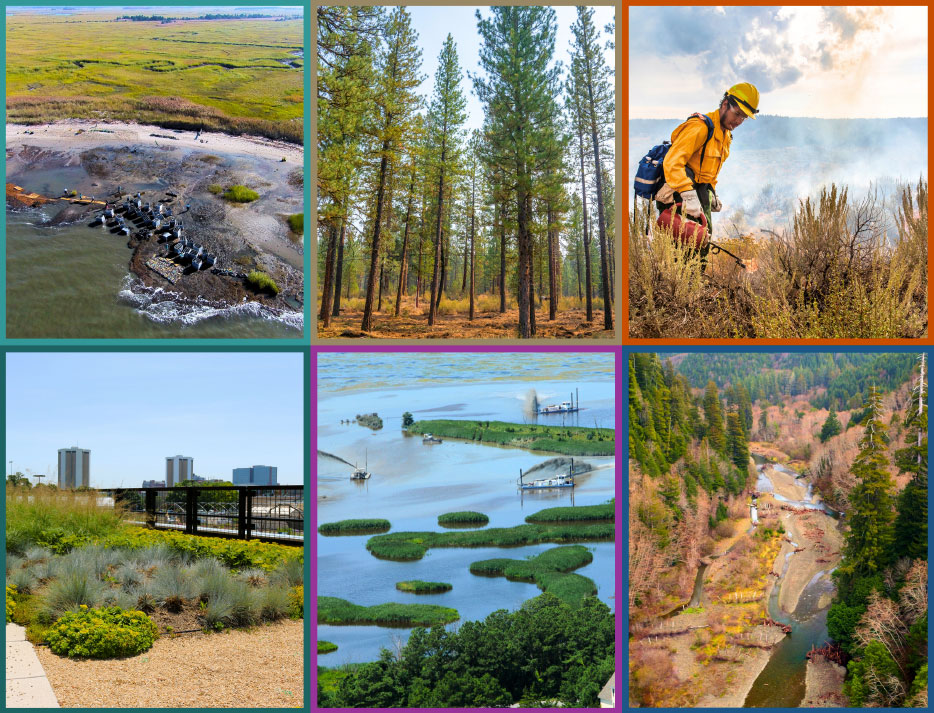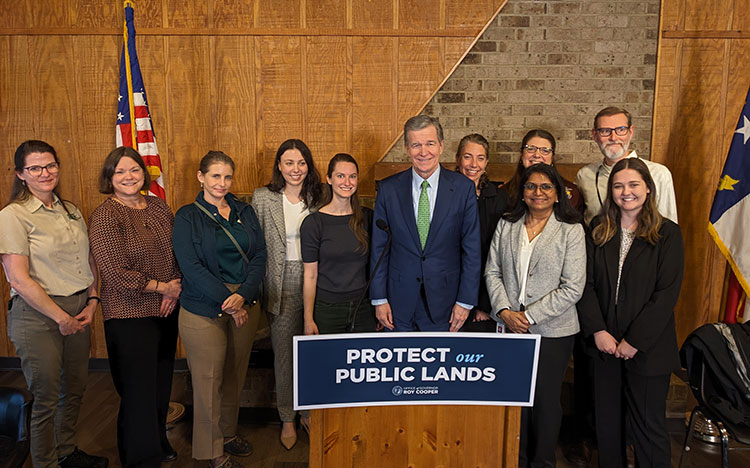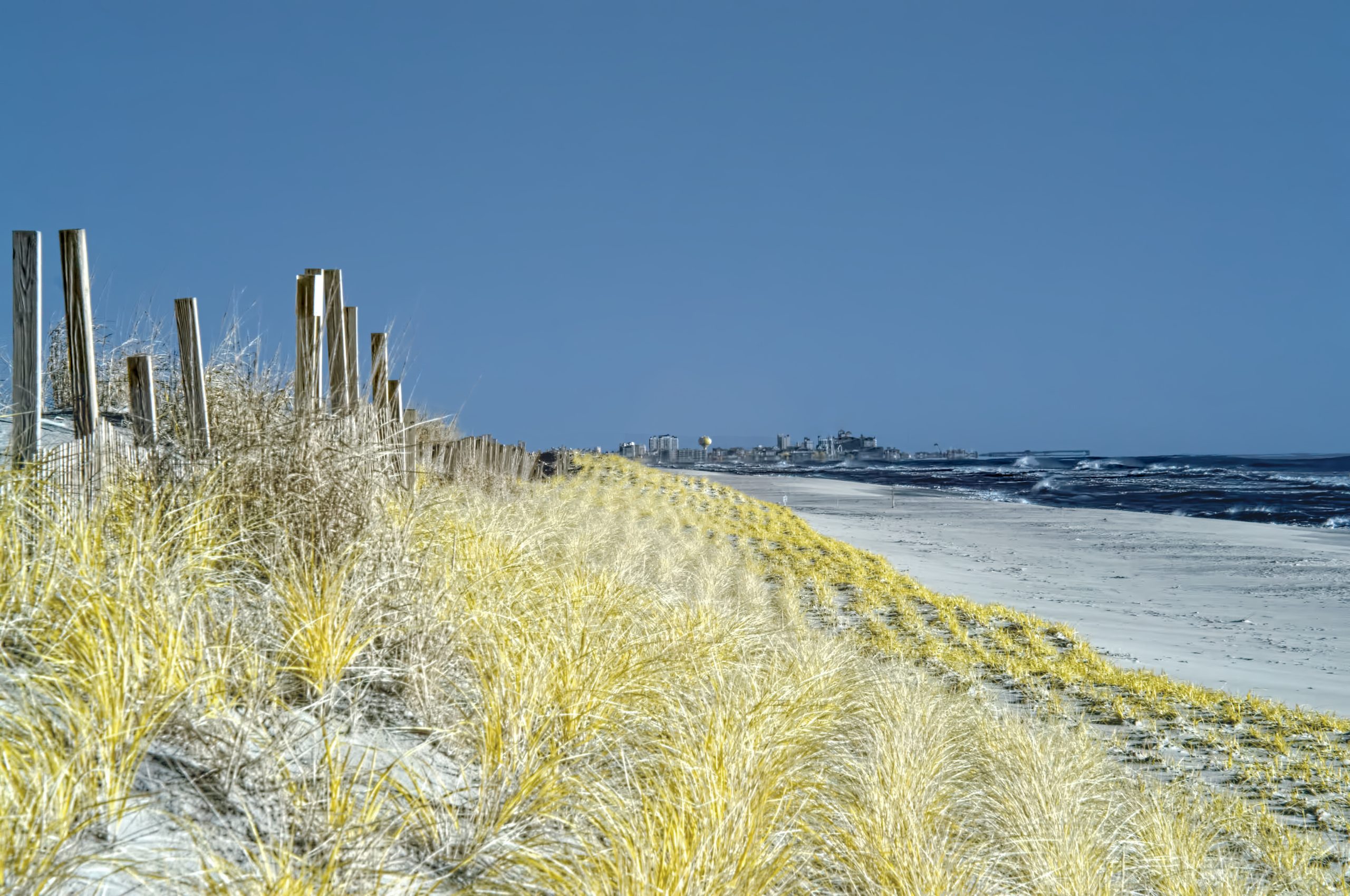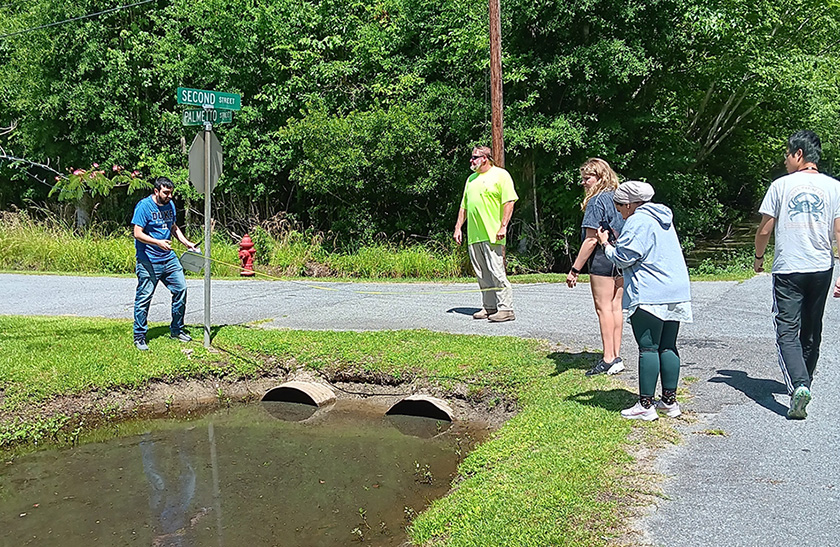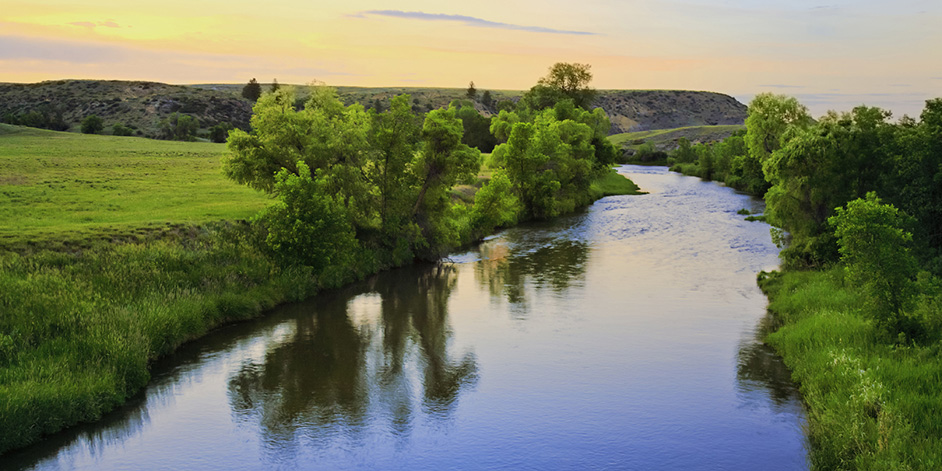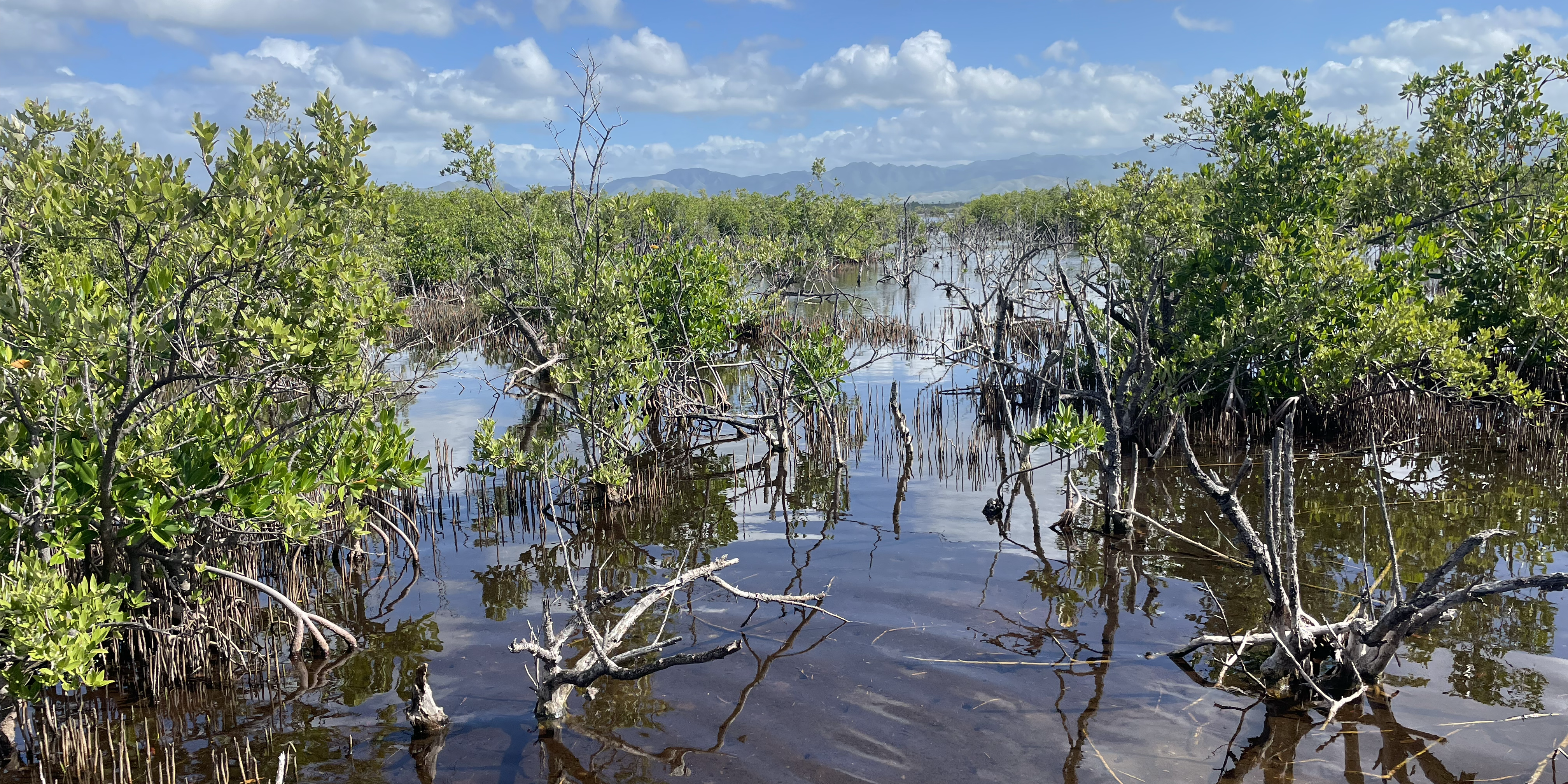Climate Resilience
As global decarbonization continues, climate change poses both immediate and long-term threats to nature and humanity. What can public- and private-sector leaders do now to reduce risk, increase resiliency, and maximize nature’s benefits for communities? How can we finance, evaluate, and improve those efforts? Nicholas Institute experts are working on these questions.
Highlight
Accelerating Implementation of Nature-Based Solutions
The Department of the Interior (DOI) Nature-Based Solutions Roadmap will support efforts by the largest manager of public lands in the United States to protect, sustainably manage, and restore these lands in ways that benefit both people and nature. The institute partnered with DOI on developing the Roadmap to provide department staff with consistent, credible information about nature-based solutions. DOI leadership introduced the Roadmap in December 2023 at COP28, and the document will be periodically updated. Nicholas Institute experts are currently collaborating with DOI on a web-based version.
pages, including 29 strategy documents and fact sheets
acres of land managed by the US Department of the Interior
Support for nature-based solutions is growing rapidly across the United States as a way to improve the resilience of our communities and ecosystems. We hope that the Department of the Interior and others can utilize the Roadmap as they work to build more resilient landscapes, watersheds, and communities.
Highlight
Scaling Up Financing for Nature-Based Solutions
While the federal government is financing nature-based solutions, private capital is needed to help scale up these projects in the United States. The Nature-Based Solutions Financing Working Group, launched by the Nicholas Institute and the Environmental Policy Innovation Center, provides resources about the role that green banks and community lenders can play in financing nature-based solutions. This project has resulted in two reports and a growing number of case studies on innovative solutions to environmental finance.
Highlight
Informing Land Conservation and Management in North Carolina and Beyond
Forests, farms, and wetlands provide numerous social, economic, and environmental benefits to North Carolina. Over several years, the Nicholas Institute has led development of a variety of tools to inform the state’s efforts to conserve and restore these natural and working lands and make information about them more accessible. That work will soon extend beyond the state with the awarding of a substantial Climate Pollution Reduction Grant from the US Environmental Protection Agency.
Protecting and Restoring NC's Natural and Working Lands
In February 2024, North Carolina Gov. Roy Cooper signed an executive order designed to support sustainable management of the state’s natural and working lands. The order seeks to implement recommendations from the 2020 North Carolina Natural and Working Lands Action Plan, as well as other existing efforts. Nicholas Institute experts played a key role in the stakeholder-driven planning process and its subsequent implementation.
Tracking Progress of Regional Climate Pollution Reduction Efforts
A coalition of four mid-Atlantic states, The Nature Conservancy, and Duke University received a $421 million Climate Pollution Reduction Grant from the US Environmental Protection Agency for a suite of nature-based projects aimed at reducing carbon emissions. The Nicholas Institute worked with the coalition partners to support development of the grant proposal and will lead reporting on the progress of the 21 coalition projects and their benefits.
Providing Data for the NC Priority Climate Action Plan
As part of the Climate Polution Reduction Grant program, North Carolina was required to develop a Priority Climate Action Plan identifying the state’s highest priority greenhouse gas reduction measures and a path to ensure equitable implementation. The Natural and Working Lands section of the plan was informed by Duke tools that map pocosin wetlands and quantify the benefits of the state’s forests, farms, wetlands, and conservation lands.
Explore the North Carolina Natural and Working Lands Dashboards →
The executive order’s ambitious goals for land conservation and restoration will preserve and enhance the many benefits North Carolina’s natural and working lands provide to everyone who lives in or visits the state.
Highlight
Advancing the National Climate Resilience Framework
Communities across the United States are experiencing the accelerating effects of climate change, including more intense extreme weather events. Released in September 2023, the first-ever National Climate Resilience Framework establishes a vision for a climate-resilient nation and guidance for resilience-related activities and investments by the federal government and its partners. The National Climate Resilience Framework: From Ideas to Action webinar series—presented by the Duke-hosted Resilience Roadmap project in partnership with a variety of institutions—convened experts from the public, private, and nonprofit sectors to discuss elements of the framework and how to implement it.
Highlight
Federal Agencies Incorporate Duke Expertise to Measure Climate Adaptation Efforts
In June 2024, the White House Council on Environmental Quality (CEQ) for the first time released a common set of indicators and metrics for assessing the progress of federal agencies’ climate adaptation plans. A report from the Nicholas Institute–led Resilience Roadmap project informed development of the CEQ document, laying out an approach to developing key performance indicators for climate change adaptation and resilience planning. The Resilience Roadmap, CEQ, and The Pew Charitable Trusts also co-hosted a series of workshops with climate adaptation leaders from a diverse group of federal agencies to identify the most appropriate indicators to use.
Infrastructure decisions made over the next 10 years will have reverberations for many decades to come, with substantial impacts for global efforts to advance sustainable development, decarbonization, and climate adaptation.
Highlight
Building Capacity for Sustainable Infrastructure
The expertise, tools, and best practices for building sustainable, climate-smart infrastructure already exist—but individuals who actively plan, design, and construct infrastructure often are unaware of these resources or how to leverage them. As infrastructure spending ramps up across the globe, there is an urgent need to build practitioners’ capacity efficiently and at scale.
Enter the Infrastructure Sustainability Learning (ISLe) Initiative. Launched at COP 28, ISLe creates virtual communities of practice for infrastructure practitioners to learn from experts and from one another about building climate-smart infrastructure. The ISLe founding partners are the Nicholas Institute, the United Nations Environment Programme, and International Coalition for Sustainable Infrastructure. At a Duke Climate Collaboration Symposium on sustainable infrastructure in March 2024, external partners shared insights during public events and then joined Duke faculty for a private workshop focused on designing new ISLE networks.
Highlight
Developing Purposeful Partnerships to Reduce Climate Risks
Duke scholars are working with leaders from the insurance and finance industries—both of which have unique capabilities to address risk—to identify how they can help communities counter climate threats.
In February 2024, the Nicholas Institute teamed with RESILE—a new university-wide research initiative on climate risk based in the Pratt School of Engineering—to host the inaugural Duke Climate Collaboration Symposium. Conversations over two days centered on how Duke can utilize its strengths and partnerships to stimulate novel approaches to climate risk in the private sector and scale up climate resilience efforts.
The symposium served as a launchpad for development of the Center for Innovation in Risk-analysis for Climate Adaptation and Decision-making (CIRCAD). Supported by a National Science Foundation planning grant, CIRCAD is a planned science and policy research center in which university faculty and students from Duke and the University of Georgia work collaboratively with partners from the insurance, finance, and other risk-related industries to develop innovative solutions to climate challenges.
Francis Bouchard
Climate Leader in Residence
“Insurers’ unique risk-signaling role, combined with their deep analytical capabilities, make them ideal partners for local leaders, policymakers and others seeking to develop risk management solutions to energy transition and community resilience challenges.“
In early 2024, insurance executive Francis Bouchard arrived at Duke as the university’s inaugural Climate Leader in Residence. Bouchard is working with Duke experts to develop research partnerships and networks to help the insurance sector advance climate change solutions. His Duke collaborators span finance, the environment, public policy, engineering, business, and more. He is also engaging with students across numerous degree programs.
Bouchard has more than three decades of experience in the insurance industry. He is currently the managing director for climate at Marsh McLennan, a leading professional services firm in the areas of risk, strategy, and people.
Education Spotlight
Making Climate Hazard Risk Data Useful for North Carolina Communities
Many communities in North Carolina are especially vulnerable to natural hazards caused or exacerbated by climate change, but they often lack data to inform their adaptation efforts. This summer, a Climate+ research team of Duke faculty and students worked closely with the town of Creswell, NC, and the North Carolina Office of Recovery and Resilience to measure flood risks, developing different damage scenarios to help the town and its residents prepare for flooding impacts. Faculty leaders included Lydia Olander and Francis Bouchard, who are continuing the work with a Bass Connections team of students and faculty during the 2024–2025 school year.
More in Climate Resilience
Partnering with Network for Engineering With Nature
Duke is bringing its expertise in environmental management, policy, and engineering to an active community of researchers, practitioners, and educators who are addressing major infrastructure challenges in the United States. The Nicholas Institute leads Duke’s involvement in the network, working with faculty, staff, and students across the university.
Combating Climate Change with Pocosins
Pocosins are unique coastal wetlands that offer North Carolina one of its best options for using nature to meet the state’s greenhouse gas emissions goals. Duke researchers have developed resources to identify opportunities for pocosin restoration and quantify the possible benefits of those efforts.
Scaling Debt-for-Nature Swaps for Developing Countries
Debt-for-nature swaps involve creditors voluntarily reducing or canceling debt in exchange for national commitments to fund specific environmental activities. Three Duke experts have identified a series of reforms aimed at scaling these transactions to help developing countries meet the interconnected crises of debt distress, biodiversity loss, and climate change.
Sharing Knowledge on Ecosystem Services
The National Ecosystem Services Partnership hosted several webinars this year on topics such as:
- White House guidance on accounting for ecosystem services in benefit-cost analysis
- State and regional programs supporting natural climate solutions
- A new US Army Corps of Engineers rule for water resources projects
- England’s “Biodiversity Net Gain” Law
Synthesizing Research and Perspectives on Mangroves
An evidence library developed by Duke scholars is informing management of two mangrove habitats in Puerto Rico and Florida to benefit both people and nature. The library brings together available scientific evidence on mangrove degradation and recovery with information gathered from local experts at the Jobos Bay and Rookery Bay research reserves.


